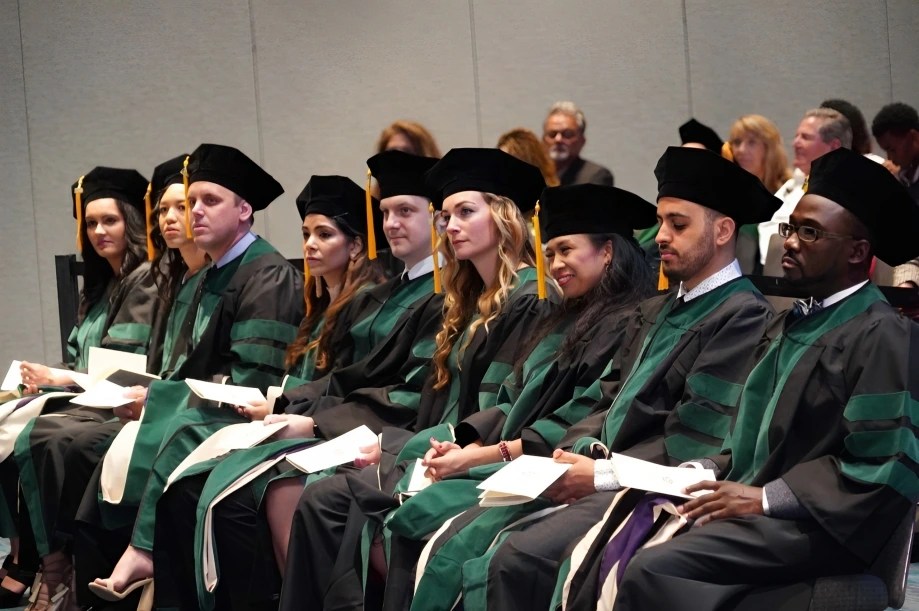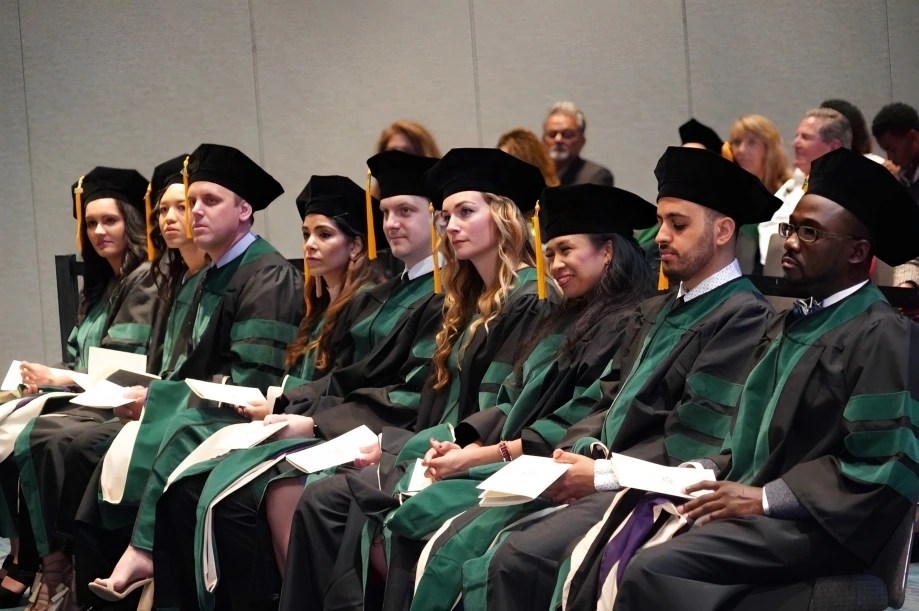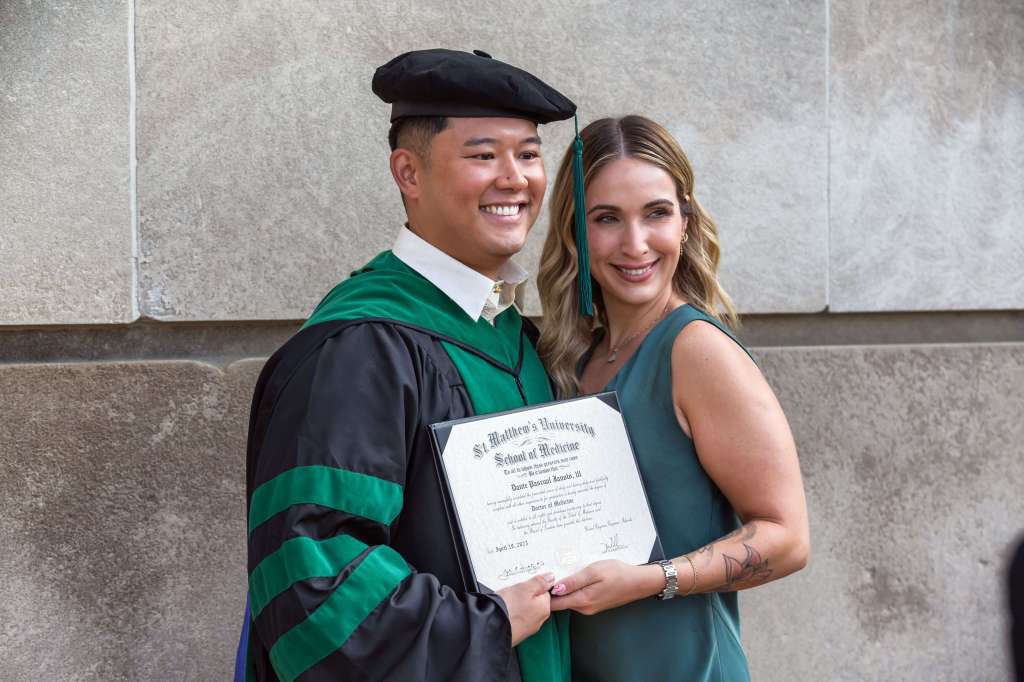
What Happens After Medical School Graduation?
Discover what to do after medical school graduation: residency, USMLE Step 3, board exams, job applications, continuing education and more.
For medical students, graduating from medical school marks a significant milestone along the path to becoming a physician! It is a major accomplishment that deserves to be celebrated and also prompts reflection on the path ahead. Those considering a medical career may find themselves wondering what happens after medical school. What can and should doctors do after graduating?
What comes after medical school graduation is a series of pivotal stages in practical training and career development. In this blog post, we’ll guide you through the key milestones that doctors encounter after graduating from medical school.



Steps to Becoming a Practicing Medical Doctor
Residency
The first year of residency is called the “internship” period and new doctors undertaking this training are called “interns.” Following the internship year, interns become “residents” and continue throughout the duration of their specialty training, which can last two to six more years, depending on the chosen field of focus. During residency, you’ll gain:
- Clinical Competence: Residents learn to manage patient care independently under the supervision of attending physicians.
- Specialized Training: Each residency program provides focused training in a specific area of medicine, such as internal medicine, surgery, pediatrics, psychiatry, etc.
- Professional Development: You’ll develop critical thinking skills, professionalism and effective communication with patients, families and colleagues.
- Preparation for Board Certification: Residency prepares you to pass the specialty certification exams necessary to become a board-certified physician in your chosen specialty.
While challenging, residency lays the groundwork for a rewarding medical career. It significantly impacts patient care and healthcare outcomes, making it a rewarding step in your journey to becoming a practicing physician.
What Happens If You Don’t Match into a Residency?
Not matching into a residency program is not the end of the road. There are several pathways you can take:
- Reapply Next Year: Many students take an extra year to gain additional experience, conduct research or improve their application before reapplying.
- Transitional or Preliminary Programs: These programs can provide additional training and experience, making you a more competitive candidate in the next match cycle.
- Alternative Careers: Some graduates explore alternative careers in healthcare, such as medical research, public health or healthcare administration.
Read how Caribbean medical schools are improving medical careers for more on alternative pathways and enhancing medical career prospects.
USMLE Step 3
The USMLE Step 3 occurs during residency and is the final part of the United States Medical Licensing Examination (USMLE) series. This two-day test assesses your ability to apply medical knowledge and understanding of biomedical and clinical science, which are essential for unsupervised medical practice. Successfully passing Step 3 is important if you intend to practice independently in the United States.
The structure and content of USMLE Step 3:
- Day 1 focuses on assessing your knowledge of basic medical and scientific principles. You’ll encounter approximately 233 multiple-choice questions, spread over six 60-minute examination blocks. The content covers various topics, including medical ethics, patient safety and clinical epidemiology principles.
- Day 2 focuses on clinical applications and patient management. It includes approximately 180 multiple-choice questions, spread over six 45-minute examination blocks. Additionally, you’ll complete 13 computer-based case simulations (CCS) that simulate real-world scenarios that test your ability to make critical decisions and apply clinical knowledge.
Launching Your Medical Career
Post-residency, there are still a few stages that physicians face before becoming full practitioners. Let’s highlight them:
Specialty Board Exams
As you near the end of your residency, you’ll need to prepare for your specialty board exams. These exams certify that you have the knowledge and skills to practice independently in your chosen specialty. Passing these exams is often a prerequisite for obtaining hospital privileges and insurance panel participation.
Additional Training Programs
Some doctors choose to pursue additional training through fellowship programs. These programs provide advanced education in subspecialties such as cardiology, oncology or pediatric surgery. Fellowships can last one to three years and offer an opportunity to gain specialized expertise and conduct research.
Applying for Jobs
Once you’ve completed your residency and any additional training, it’s time to start applying for jobs. Whether you want to work in a hospital, join a private practice or start training others, job searching is a critical step in launching your medical career.
Lifelong Learning
The medical landscape is constantly evolving, making continuing education essential for medical practitioners. In many countries, including the United States and Canada, continuing education is mandatory for maintaining licensing.
Continuing education helps doctors stay abreast of the latest research, technologies and treatment options. This updated knowledge enables them to provide more accurate diagnoses, make well-informed decisions about patient care and offer the most effective treatments. It also enhances their communication skills, empathy and cultural understanding, improving patient satisfaction and overall healthcare outcomes.
Lifelong education can take many forms, such as regularly attending conferences, participating in workshops and completing Continuing Medical Education (CME) courses. For instance, in the United States, doctors might attend the American Medical Association’s (AMA) annual conference or participate in CME courses offered by renowned medical institutions such as Mayo Clinic. In Canada, physicians may attend the Canadian Medical Association’s (CMA) General Council meeting or engage in CME activities through the Royal College of Physicians and Surgeons of Canada.
Conclusion
Every phase of medical school, from graduation to board exams and job applications, is an opportunity to learn and grow. Even if the path isn’t always straightforward, there are many ways to achieve your goals and contribute meaningfully to medicine. So embrace the journey, stay curious and keep learning – both your future patients and career will benefit from it!
Explore the MD Program at St. Matthew’s University for more information on medical training and programs. You can also learn more about our school in this alum testimonial video:
Then contact us with any questions or learn more about applying today!
Frequently Asked Questions
Residency begins after completing your MD degree and graduating from medical school. During your residency, you will work under experienced physicians in hospitals and clinics. The duration of residency varies by specialty, typically lasting three to seven years. Residents gain hands-on experience, manage patient care, expand their clinical skills and develop deep understanding within their chosen specialty. Completing your residency is critical for board certification and preparing for independent practice.
After graduating from medical school, you are considered a Doctor of Medicine (MD). However, to practice independently, you must complete a residency program. You are a licensed physician in training during residency but are not yet able to practice independently. Completing residency and passing the relevant board exams qualify you for board certification in your specialty, allowing you to practice without supervision.
Getting into a residency program involves several steps:
- USMLE Exams: Medical students must pass the relevant USMLE (United States Medical Licensing Examination) steps for future MDs. Steps 1 and 2 occur during medical school, and Step 3 occurs during residency.
- Residency Application: Students apply to residency programs through the Electronic Residency Application Service (ERAS), submitting their medical school transcripts, letters of recommendation, personal statements and other relevant documents.
- Interviews: Programs invite selected applicants for interviews to assess their suitability for residency.
- The Match: After interviews, applicants and residency programs rank each other through the National Resident Matching Program (NRMP) algorithm, which matches applicants to programs based on the rankings.
- Match Week: You will find out if and where you’ve matched during Match Week, typically the third week in March each year.
- SOAP: If you don’t match initially, the Supplemental Offer and Acceptance Program (SOAP) provides another chance to secure a residency position.
Medical students typically take at least three major board exams:
- USMLE Step 1: Assesses basic medical knowledge after the second year of medical school. For students at St. Matthew’s University, this exam takes place in their last year in Basic Science on Grand Cayman, after their fifth semester.
- USMLE Step 2 CK: During the fourth year of medical school, students take USMLE Step 2, which includes the Clinical Knowledge CK exam. At St. Matthew’s University, students complete these exams during their clinical training in the United States or Canada.
- USMLE Step 3: Usually taken during or after the first year of residency, this exam assesses the ability to apply medical knowledge in an unsupervised setting.
After these initial exams, additional specialty board exams are taken following residency to achieve board certification in a specific specialty.
Request More Information